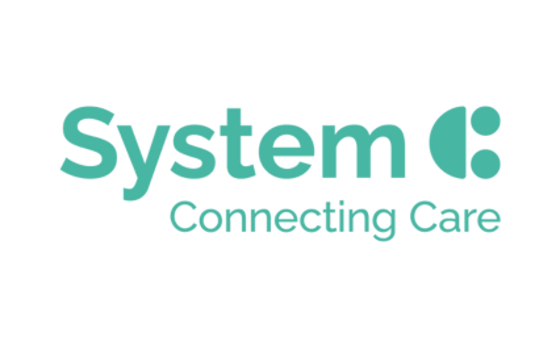 St Helens and Knowsley Teaching Hospitals NHS Trusthas successfully gone live with System C’s CareFlow Vitals as part of its ambitious strategy to accelerate digitisation and become a digital exemplar using System C’s hospital and care community-wide blueprint.
St Helens and Knowsley Teaching Hospitals NHS Trusthas successfully gone live with System C’s CareFlow Vitals as part of its ambitious strategy to accelerate digitisation and become a digital exemplar using System C’s hospital and care community-wide blueprint.
The record-breakingCareFlow Vitals roll-out was the first time the e-observations software had been deployed to all inpatient areas in any organisation, using a 'big bang' approach, whilesimultaneously replacing an existing electronic observations solution.
It is also the latest in a series of deployments since the Trust went live with System C’s Medway EPR as its core operational system just 15 months ago. Other milestones include the deployment of CP-IS capabilities - a national information sharing project between health and social care staff to better protect vulnerable children. Social care professionals at St Helens Council use the Liquidlogic adults' and children's software, also provided by System C.
As part of the same digitisation process, St Helens Cares, the local place-based care system in St Helens, has gone live with Graphnet’s shared record software in support of its strategy of providing improved, joined up health and care services to its residents.
This means that social care teams at the council, staff at St Helens and Knowsley Teaching Hospitals NHS Trust, GPs, community and mental health workers and other teams are now sharing health and care records on the borough’s 178,500 residents.
The digitisation programme is already having a positive impact. Having hospital and GP information at their fingertips, such as admissions and discharges, ward numbers, names of doctors and so on, means social care staff no longer have to send emails or make phone calls to check up on essential details about people in their care. GPs and hospital staff in turn no longer have to respond to those enquiries.
The CareFlow Vitals software, with observations and nursing assessments collected at the bedside, isproviding prompter alerting of patient deterioration and risks, helping the Trustachieve a >99% compliance with the national 2019/20 Commissioning for Quality and Innovation (CQUIN) framework, for example.
Further CareFlow Vitals benefits include access to detailedclinical information on the move, an overview of real-time care delivery, standardisation of observations captured and gaps identified,and a reduction in paper footprint.
Mick Heaton, EPR programme manager, St Helens and Knowsley Teaching Hospitals NHS Trust, said: "Delivering this size of implementation successfully in such a tight timescale was made possible by excellent partnership working between System C, clinical staff and the informatics team. One thing that worked particularly well was daily catch-up calls that were put in place two weeks before and two weeks after go live to ensure issues were dealt with as quickly as possible to minimise any impact on end users.It is a major achievement and I would like to thank everyone involved for their efforts."
Beverley Bryant, System C’s chief operating officer, added: "St Helens going live in one day was a great achievement by the combined teams. Successful teamwork and collaboration, together with our tried and tested blueprintmethodology, was key to meeting St Helens and Knowsley’s deployment timescales."
The Trust is using a range of Vitals assessments including: sepsis, dementia and delirium, Carbapenemase Producing Enterobacteriaceae (CPE), falls, fluid balance, indwelling devices, Malnutrition Universal Screening Tool (MUST), Maelor, Bristol Stools, smoking and alcohol. The new system has introduced NEWS2 screening which means all patients are assessed using the latest version of the National Early Warning Score (NEWS) model.
About System C
System C is the UK's leading health and social care software supplier. Its products include the Medway electronic patient record and associated products, mobile clinical support solutions, CarePlus Child Health and the Liquidlogic range of social care software.System C is part of the System C & Graphnet Care Alliance, a strategic alliance offering IT solutions that allow for the integration of health and social care services across whole care communities and STP areas.
Our solutions use leading-edge technologies - including mobile, wearables, instant messaging and machine learning - to radically redesign services and the way clinicians and patients interact together.